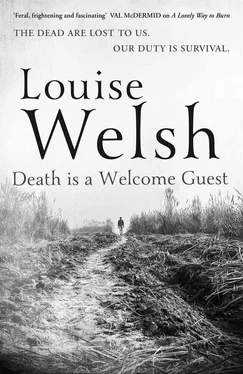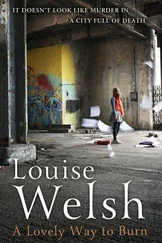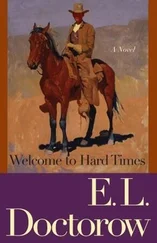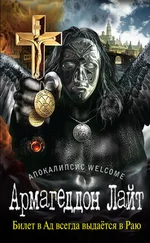‘I’m Jacob Powe.’
Civilisation ran deep, Magnus thought. Everything was broken, but the man still felt an obligation to exchange names, as if they had met at a dinner party or a neighbourhood barbecue. He said, ‘You’re a minister?’
‘An Anglican priest.’
Magnus had never got the hang of English religions with their married priests and un-Catholic masses.
‘An army man?’
‘A captain, if the army still exists.’
It was strange, a priest with a gun in his hand, though it was not so hard to imagine Jesus armed and ready to fight the good fight. It was the Messiah’s beard and long hair that did it. The New Testament’s hippy look brought back images of IRA and Afghan terrorists, or freedom fighters, depending on your point of view. There were the makings of a good routine there (a God routine), he thought, and remembered again that there was no comedy circuit, no audience waiting to be shocked into laughter. He wondered if they had anything to drink at the place where they were going. He had a thirst that would drain Christ dry.
‘What do we call you?’ he asked. ‘Captain or Father?’
‘Jacob.’ The car slowed and Jeb muttered something as they turned into a driveway guarded either side by massive stone gateposts, each one topped with a carved pineapple, regal in its spikiness. ‘Welcome to Tanqueray House.’
The driveway was hemmed on either side by an avenue of trees. The road’s surface was tamped earth that had been covered some time back with shale. It was pitted with potholes and Jacob took it slowly. It was clear that the place had been neglected before the arrival of the sweats. An explosion of rhododendrons reached across the drive from overgrown verges, occasionally tapping against the car windows, like paparazzi in search of an incriminating photograph. The flowers were the same bright reds and purples of the saris that had sometimes drawn Magnus’s eyes on London streets; they had died too, the straight-backed Asian women with beautiful hair. Magnus rolled down the window and the scent of rotting foliage, more perfumed than the smell of decomposing flesh, but tainted all the same, slid into the car. He rolled up the window again. People went on about the beauty of trees, but Magnus had never felt easy around them. The branches bobbed and tangled above the drive, like mothers separated from their children, straining to touch even their fingertips. The image made him think of his own mother, how much she would be worrying about him. He pushed the thought away. There was no point in dwelling on possibilities. His task was to get home. He would leave in the morning. If he made steady progress he could be at the ferry terminal in a few days. The ferry would be no use, but it was the shortest crossing point. There would be other boats moored there and he would find one to suit him.
He asked, ‘How many of there are you?’
‘Seven — six.’ Jacob stumbled over the number. ‘Father Wingate was here before the sweats arrived. The house was a seminary and he was one of the brothers. He’s eighty-two, but in good health for his age, sharp as a blade.’
‘Eighty-two,’ Magnus repeated.
‘We’re lucky to have him. Father Wingate remembers the way a lot of things used to be done, before technology took over. His generation will be crucial to our survival.’
‘And the others?’
‘They came later. Waifs and strays, like you and Jeb. Like me if it comes to it.’
Magnus was about to say that he wasn’t a waif or a stray. He had somewhere to go, but the car swung around the final turn, the rhododendrons gave a last desperate clutch and the house appeared at the end of the drive. It was larger than he had expected, three storeys high and broad enough to suggest that once there had been other wings balancing the structure.
‘No vow of poverty,’ Magnus said.
Jacob shrugged. ‘It was Father Wingate’s ancestral home. He donated it to the Church when he took holy orders, much to the outrage of his extended family, I imagine. The Church would no doubt have sold it in due course.’
‘In due course,’ Magnus repeated. Death was everywhere, and yet they still referred to it with euphemisms.
The mansion’s roof was turreted and decorated with urns, like a house in an Agatha Christie movie where someone was due to topple to their death. Two staircases curved liquidly from an elevated porch down to a gravel courtyard where a Luton and a Transit van were parked. Each floor was defined by rows of windows, standing uniformly in line, black and secret. The house had been designed to impress, but it reminded Magnus of Pentonville, their flight across the courtyard uncertain of who was watching them. He wondered if people lurked behind the panes, observing their arrival and wondering in turn who the newcomers might be.
As if on cue the door of the house opened and a young woman trotted down the left staircase towards them. The girl looked like she had been born to the big house. She was in her early twenties, blonde and slender, with a pert nose that looked too good to be natural. Magnus thought that she might have been one of the girls he had glimpsed earlier that day, crouching in a ditch, disguised as boys, but he could not be sure.
Jacob slowed the car to a halt and the girl opened the driver’s door. Magnus had thought their arrival would be an occasion, but she barely spared him a glance. She took hold of Jacob’s arm, as if she were about to pull him from the car and said, ‘Henry’s gone.’
Jacob poured himself a small measure of whisky from the not quite full bottle on the kitchen table. He raised the glass to his nose and inhaled the malt fumes. The house was without electricity and the room was lit by a cluster of candles that threw weird shadows against the walls. ‘This isn’t a prison.’ He had said the same thing as they sat down to dinner. His expression was serious, as if it were medicine he was about to put to his lips and not a fine Lagavulin. ‘Henry was at liberty to move on.’
‘He said he was going to stay.’ Belle’s voice had a rich-girl whine to it. ‘He promised me.’
Magnus swirled the liquid in his glass, smelled a faint whiff of peat, took a sip and felt the malt slide down, warm and golden. The politics of the place were nothing to do with him. Now that they had eaten, only the bottle held him at the table.
They had laid Jeb on a door and carried him up to the main entrance. He was delirious and Jacob had sent the girl, whose name was Belle, indoors to find something to strap him to the makeshift stretcher with. Magnus had expected to deposit Jeb somewhere on the ground floor, but the priest had led the way up a grand central staircase and they had manhandled the stretcher to a room on the first floor. Now Jeb was in bed, tucked tight in a medicated sleep, his leg firmly bound, his ribs cushioned on either side by pillows. Father Wingate was sitting with him.
The elderly priest was a slight, shrunken figure whose head seemed too large for his body, the way the heads of children or anorexics sometimes can. His hair was thin, but brushed over his forehead in a style that might once, when the hair had been thicker and darker, have been considered foppish. Father Wingate looked too slow to avoid a coffin for much longer, but he had been quick to offer his help. Magnus imagined him in the room along the passageway, murmuring prayers over the bed, trying to inveigle God into Jeb’s soul.
‘Maybe something happened to Henry.’ Injury tinged Belle’s voice, as if the sweats had been a mean trick played on her alone.
‘Maybe,’ Jacob agreed. He stared at his barely touched glass, his voice as calm as the liquid it held.
Magnus wondered if the cleric had helped himself to something from the medicine cabinet when he had been dosing Jeb. There was a lifetime of whisky and pills still out there for the taking. If he got to Orkney and found it deserted he could drink himself to death on the supply in Stromness alone and if that did not work he could drink himself from house to house until he reached Kirkwall and beyond. He would take a man’s way out, unlike Hugh. His cousin had died a hysteric’s death. Stones in his pocket like some lady poet. I was much too far out all my life and not waving but drowning. They had learned that stupid poem at school, but Hugh had not been out of his depth. The inquest had reported that the water had barely reached his chest before he sank beneath it.
Читать дальше












